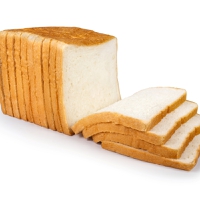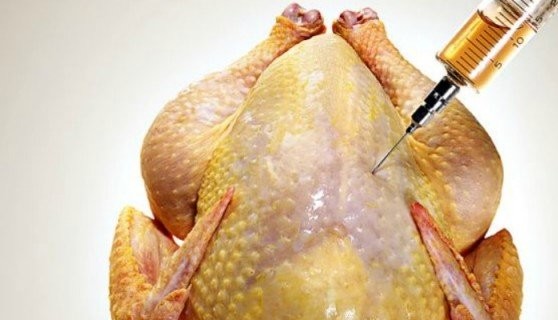Banned Ingredients That America Still Serves
- Sam Jump

- Jul 27, 2020
- 4 min read
Updated: Aug 29, 2020
9 items that are illegal to use in other countries....but not in the U.S.

While the standards and production practices for food vary from country to country, there are some items that have been collectively deemed unsafe to serve human beings. Even so, many are still worked into products being dished out to the masses here in America.
I present to you nine of those ingredients. And while you might not immediately recognize the names of the ingredients, the items they're used in will likely ring a bell. You may even find them nestled right there in your kitchen as you read this.
#1 BHA and BHT
These two are found in product packaging. They're also found in items such as cereals, instant potatoes, and dry mixes. They're used to extend the shelf life of a product, but the body receives them as carcinogens and endocrine disruptors. Both are banned for or use in food and drinks in Japan, the UK, and European Union among other countries.
#2 Dough Conditioners
Just as one might guess, these chemicals condition the strength and texture of bread dough, including potassium bromate and azodicarbonamide. Where, more specifically, would you recognize them? White breads, rolls, and "egg breads" are largely known to be treated with those chemical, which the body processes as carcinogens. Between the two, China, India, Brazil, European, Australia, and Canada have them on their banned lists.
#3 Propylparaben
Used as a preservative in tortillas, muffins, trail mixes, pies, sausages, rolls, and much more in the U.S., it's been scientifically proven to affect sex hormones and sperm count as well as be linked to breast cancer.
“It is of great concern to us that the use of an endocrine-disrupting chemical in our food is considered safe by our own government." -Johanna Congleton, Ph.D; senior scientist of the Environmental Working Group
In 2006 the European Food Safety Authority banned the use of propylparaben in food and expanded that to even include cosmetic products in 2015. Propylparaben is totally legal in the United States.
#4 Brominated Vegetable Oil (BVO)
BVO was originally patented by chemical companies as a flame retardant, but it can now be found in colorful sports drinks (conveniently marketed near the faces of sports athletes) as well as sodas; used in both lines of products as an emulsifier. What's BVO's M.O.?
BVO accumulates in human tissue and breast milk (you read that right), and it has been connected to memory loss over time. It's also been linked to skin rashes, heart problems, major organ damage and birth defects. No big deal. Risk for autoimmune disease and certain cancers are also increased as BVO interferes with iodine receptors in the body.
While it's been banned in Japan and other countries, it's been widely used in food and drinks in America since it was approved by the FDA in 1977.
#5 Glyphosate
Some of the largest (aka most profitable) crops in the U.S. are widely genetically modified, even though many European countries have banned them due to worries of public safety; items such as corn, soy, corn, cotton, and alfalfa. That's not to say that all genetically modified items are toxic. The detail at hand is actually the DNA alteration that increases the plants' resistance to herbicides, that occurs during most mass genetic modifications.
Even more specifically, I'm speaking of glyphosate, the primary ingredient in Roundup - you might have heard of it. Glyphosate is very closely linked to cancer, which is a major hurdle that Bayer, creator of Roundup, is facing via lawsuits involving nearly 15 thousand people.
As of 2019, countries with bans to major restrictions on the use of glyphosate include Argentina, Australia, Austria, Belgium, Brazil, Canada, Colombia, Czech Republic, Denmark, El Salvador, France, Germany, Greece, India, Italy, Luxembourg, Malta, Netherlands, New Zealand, Portugal, Scotland, Slovenia, Spain, Sri Lanka, Sweden, Switzerland, Thailand, and the United Kingdom.
#6 Ractophamine
Banned in 122 countries, this muscle enhancer for pigs, cows, and turkeys doesn’t just go away when the animal is slaughtered. Some of it is still left in the meat you buy and proceed to ingest, and it is linked to reproductive and cardiovascular damage in humans.
#7 Roxarsone (arsenic)
Arsenic, itself, is not banned at all in food use in America; however, Pfizer's product and way of profiting from arsenic's use in poultry processing is. Pfizer stopped selling the product in 2011, but arsenic usage as a means to increase the pink coloring of raw chicken meat, speed the growth of the birds before slaughter, and prevent parasites in a chicken’s stomach continues to be an active practice.
Chronic exposure to arsenic can lead to kidney damage, anemia, certain cancers, miscarriages, and birth defects in humans; and while the European Union has banned the use of all arsenic-based drugs, many chicken products in the United States still contain it.
#8 Synthetic food dyes
The U.S. used to use natural food dyes until the mid-19th century when food manufacturers realized it was much cheaper to use chemicals, which also made foods and drinks even more visually stimulating.
Research has linked consumption of synthetic dyes to an increased risk for numerous conditions including tumors and hyperactivity in children. They're banned in Europe and Australia (the dyes, not the hyperactive children...it's-a joke-a).

#9 rBGH and rBST (synthetic hormones)
These two hormones are widely-used in America's dairy industry to increase milk production in cows. These hormones often lead to the need for antibiotics in those same cows due to the formation of tumors and infection.
In humans, these hormones increase the risk for certain cancers and digestive issues. Canada, the European Union, and other countries have banned the use of rBGH and rBST.
By Sam Jump


































Comments